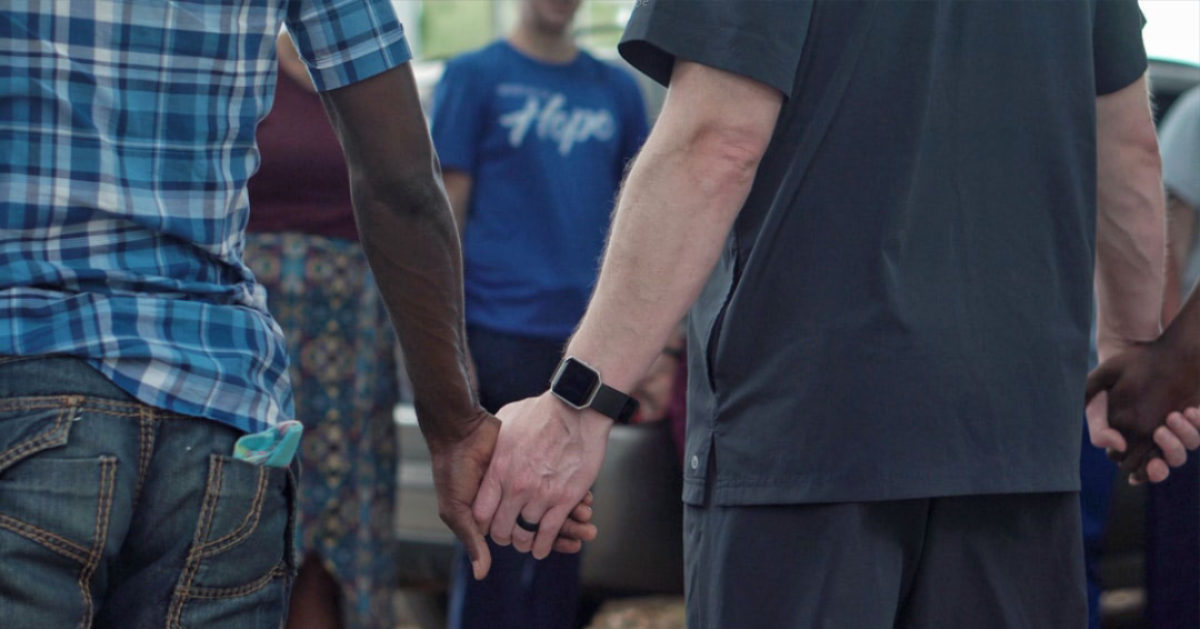
When treatment ends, the work of recovery begins in earnest. This phase of rehabilitation is generally known as after care.
A solid after care program tailored to someone’s individual needs and circumstances can make all the difference in a successful start on the path to sobriety. With after care support, there is a concerted effort to strengthen a patient’s physical, emotional, spiritual and mental health. After care includes a focus on growth and improving health and wellness through daily habits that encourage mindfulness, engagement, and empowerment. The overall goal is to smooth the transition from treatment to normal life.
There can be many components to after care. These may include job training, legal services, medical care, therapy and cultivating a fulfilling life with hobbies and activities that reinforce recovery. One of the most important parts of after care can be peer support.
What is Peer Support?
A support network is critical for recovery, and it should be made up of people who can serve as sounding boards, supporters and resources of information and knowledge. Part of that network is peer support, and that can take different forms.
There are peer support groups, which are most commonly 12-step groups such as Alcoholics Anonymous and Narcotics Anonymous. This is where people with the shared goal of recovery can discuss their experiences and find common ground with each other. Then there are individuals who can serve as peer support mentors in one-on-one relationships with their mentees. These people are usually farther along in their sobriety journey and can share their experiences and successes, serving as role models of sorts. In some cases, peer support mentors receive specilaized training in fields such as mental health or working with family members of the person in after care. With both individual and group peer support, empathy is the cornerstone.
Benefits of After Care Peer Support
People can reap many benefits from peer support that can improve their health and wellness and help them thrive in recovery.
Peer support emphasizes a person’s strengths and gives them the power to move forward on their journey to sobriety. That empowerment can be critical in developing the well-being and resiliency to face whatever challenges may crop up during recovery, which in turn can reduce the risk of a relapse.
Many peer supporters serve as good listeners who can offer wise counsel or ask questions to help a person dive deep into the issues they may be dealing with and come up with solutions to work through problems. People trained in peer support can also educate on different subjects, either one on one or in a group. Peer mentorship may also take the form of a sponsor/sponsee relationship within the context of a 12-step support group. Another type of peer support can include peer mediation that aims to resolve conflicts in relationships.
Peer support can have many concrete goals that will support someone during recovery. These can include directing someone towards services and resources; developing the relationships necessary for a strong support network; educating on relapse prevention; planning for a crisis; honing coping skills and setting goals. Peer supporters can also work within the context of a public agency to advocate and educate the public and strive to help guide policies set by lawmakers that can affect areas that impact recovery, such as mental health services. Peer support workers can be found in many places, such as hospitals, community centers, clinics or colleges.
When someone is in a peer support group or relationship, trust is essential for everyone involved. Communication should be open and honest, and there should be a promise of confidentiality for all parties to encourage the free flow of discussion. Peer support for after care most often takes place in person, but can also in some cases be done over the phone or online.
Patients looking for after care peer support outside of a support group atmosphere can look for a certified peer counselor. For instance, with mental health concerns each state may have certain training and certification requirements; there is also a National Certified Peer Specialist Credential. The latter includes training hours, an exam and completion of a minimum 3,000 hours of peer support work in a paid or volunteer capacity.
People who seek out a career or volunteer role as a peer support mentor or counselor often do so because they find the work rewarding. Many times they have been on the receiving end of peer support, and the value they gained from that relationship has inspired them to specialize in offering peer support. Often, peer support mentors say they gain tremendous benefits from their role, such as a boost in confidence and positivity, because they are doing something that has a purpose: to help others. Peer support can also have an impact on community health, as it can play a role in preventing relapse and hospitalizations while also improving the chances for successful sobriety.
Peer support is an invaluable tool to help strengthen someone’s health and wellness during recovery. Casa Palmera offers peer support as part of a comprehensive aftercare program that can be customized to every patient. We offer this on Tuesdays and Thursdays nights from 7:30-8:30. If you are looking to develop a firm foundation for your recovery, contact us today to discuss treatment and after care options.




